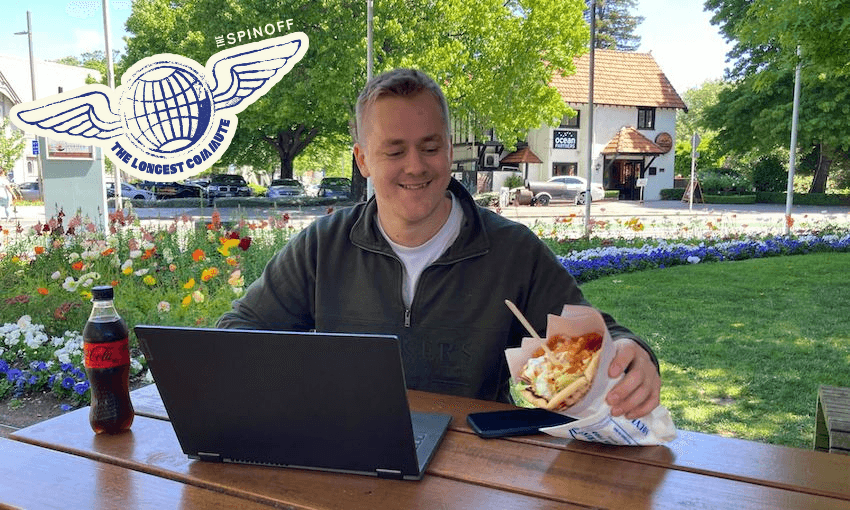Joel MacManus attempts to travel from the bottom to the top of the country without a car or plane. Today: can he finally leave Te Waipounamu?
The mission: Get from Stewart Island to Cape Reinga as fast as possible using only public transport. Wherever I can, I’ll travel by train. In areas that are too rural or too watery for trains, I’ll take buses and ferries.
Why? That’s a great question. I’m honestly not sure. I hope to learn something about New Zealand and gain new insight into the country I call home.
When New Zealanders travel around their own country, public transport is usually an afterthought. Decades of underfunding have left our inter-city rail slow, expensive, and infrequent. I want to find out what it is really like.
The itinerary:
- Ferry from Oban to Bluff
- Bus from Bluff to Invercargill
- Bus from Invercargill to Dunedin
- Bus from Dunedin to Christchurch
- Train from Christchurch to Picton
- Ferry from Picton to Wellington
- Train from Wellington to Auckland
- Bus from Auckland to Paihia
- Bus to Cape Reinga (part of an 11-hour sightseeing tour of the Far North)
The cost: $1,052 in total for the tickets. If everything goes to plan (which it probably won’t), it will take me 150 hours. By comparison, riding the entire length of the Tranz-Siberian railway from Moscow to Vladivostok, which is five times longer than New Zealand, takes 147 hours.
I began on Monday in Oban and am now starting day three in Dunedin. Join me as I continue my journey north to Cape Reinga and enlightenment.


